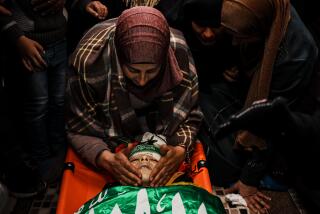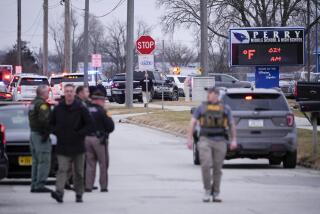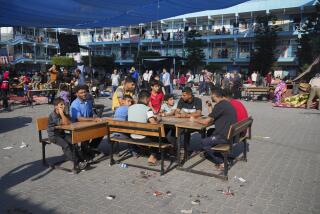Newtown hits home, and hard
I text a friend about an appointment we share, and the response, when it finally comes, is “In CT.”
In Connecticut, helping friends bury their 6-year-old daughter.
I stare at the phone, send him a message of condolence and wonder just how we’re all supposed to get through this, really.
I have a 6-year-old daughter. She just lost her first front tooth, and as we laughed and applauded her new smile, all I could think of was all those parents in Newtown. Did they get this moment? Are there baby teeth tucked in a drawer somewhere, and will they, at some point, provide any comfort?
My 6-year-old doesn’t know about the shootings, although she does ask about all the big black cars on the front page of the newspapers. My older children do, and my 12-year-old daughter has been greatly affected. She asks me over and over “how?” and “why?” — concerned less about her safety than her understanding of people, of the world.
We lost a local boy to suicide at our high school last year, and she is beginning to sense the cold, distant reaches of the human soul where monsters are real. That, more than the possibility of a shooting at her school, is what frightens her. She is learning the terrifying truth that there are no rules without exception, that people are capable of just about anything.
I tell her that, in this world, wonderful and awful things happen to people every day. That beautiful children are born every minute and sometimes they die as quickly, that people act with unbelievable heroism and kindness and unbearable cruelty. That at least the people of Newtown have the prayers, love and sympathy of the nation to help them bear their grief. All of which is true but feels false because I don’t understand how or why any more than she does.
Children do die, in this country not as often as they once did, but more often then they should, which is never. My father lost a 3-year-old sister; friends have lost young siblings and their own children, and every time it happens, it feels like the universe is broken.
There is a reason Anne Frank made the Holocaust real when even newsreels couldn’t quite, why the tragedy in Newtown may bring about changes in policy that other massacres did not. Young children, especially 20 at a time, are not supposed to die.
That they do is our collective nightmare, which is why our horror stories are filled with child ghosts, why so many powerful images of war or natural disaster contain small bodies. There is no greater fear that we share, no deeper grief or rage. Many men lay dead in “Henry V,” but Shakespeare knew it was the slaughter of the young pages that would make the horror of war real. “I was not angry since I came to France until this instant,” Henry says, surveying the murdered boys.
As human beings, our one essential task is survival, and that includes protecting those who have not yet reached adulthood. In this we fail, each and every day. Some children die for reasons truly beyond our control: untreatable disease, inescapable natural disaster, a freak accident. But too many die because they are hungry or poor, because they live in dangerous neighborhoods, because people drive too fast or after having a few drinks, because some adults are crazy and there are too many guns in this country.
In a pretty little town preparing for Christmas, the slaughter of innocents — not by an invading army or terrorists but by a young American man — and we are a nation stopped short, waiting for answers, finding none. The ghosts of those 20 children, and all the others who have died needlessly, edge into the rooms where our living children prepare for the holidays, where they laugh and play, argue and whine, reminding us of our duty.
My older daughter asks me when things will seem normal again, and I tell her soon. But that normal will be different, should be different, must be different. Because when our children cannot go to school, or college, or the mall, or the movies without the fear of being shot, clearly our normal needs to change.
Mary McNamara is television critic and senior culture editor of The Times.
More to Read
A cure for the common opinion
Get thought-provoking perspectives with our weekly newsletter.
You may occasionally receive promotional content from the Los Angeles Times.







